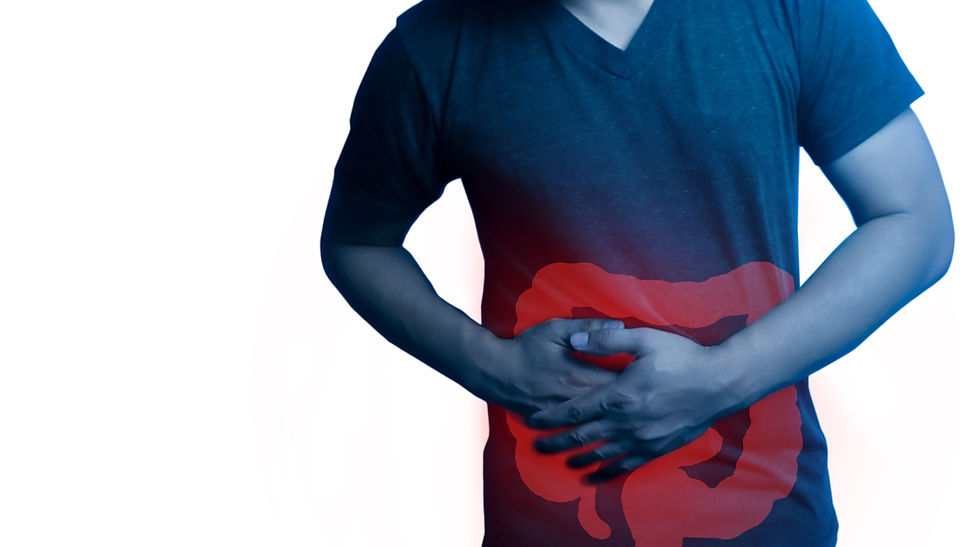Understanding the Common Causes of Pancreatitis
- painmd9
- Apr 2, 2024
- 4 min read
Pancreatitis, in simple words, is the inflammation of the pancreas. It turns ethical because of the complex management it demands and the unbearable amount of discomfort it brings to the person. It is imperative to understand the causes of the condition, not because of an academic interest but for people trying to manage or prevent the occurrence of that condition. Now, we will talk in detail about pancreatitis and the most common causes, and it will be emphasized that to manage this condition properly, professional pancreatic pain treatment of pain is a must.
Understanding Pancreatitis
What is Pancreatitis?
Pancreatitis is swelling of the pancreas, a gland standing at the back of the stomach. From the position of the regular flow of things, the insufficiency of participation in digestion and control of the keeping of sugar is important in general.

Pancreatitis comes in two main forms:
Acute pancreatitis can be explained as inflammation of the pancreas, so intense that it can read the gamut from minor uneasiness to a fatal disease.
In other words, chronic pancreatitis is long-term swelling of the pancreas in which it progressively destroys its organ and, regrettably, digests itself.
Symptoms to Watch For
The signs and symptoms can differ greatly from person to person.
Initial Symptoms - Acute and sudden onset of moderate to severe pain in the upper abdomen.
Accompanying Symptoms - These often include nausea, vomiting, fever, fast heart rate (tachycardia), and shock.
Chronic Pancreatitis Issues - Long-term pancreatitis can lead to poor digestion, resulting in weight loss and inadequate absorption of nutrients.
Signs in Stool - Changes in the pancreas affecting digestion can cause noticeable changes in the stool.
Common Causes of Pancreatitis
Understanding the triggers of pancreatitis is vital for prevention and management. Below are the most common causes:
Alcohol Consumption Heavy alcohol use is a leading cause of both acute and chronic pancreatitis pain. The toxins in alcohol may induce inflammation and damage to pancreatic tissues in a person who consumes large daily amounts over time.
Gallstones Other conditions, such as gallstones blocking the bile duct, which shares an exit with the pancreatic duct, can thus bring about acute pancreatitis since digestive enzymes get trapped and start digesting the pancreas.
Medications Other causative factors include medications such as diuretics, antibiotics, and chemotherapy drugs, among others, which have been associated with pancreatitis. Again, this is to be seen through the lenses of social ecology.
Genetic Factors Pancreatitis could occur in some people due to genetics. The pancreas is affected by the genetic mutation or the enzyme and bile processing, which directly affects the body.
Other Causes Among other, less common triggering factors are considered high levels of triglycerides in the blood, autoimmune disorders, and physical injury to the abdomen each capable of setting off or, better said, enabling the cascade of inflammatory processes in the pancreas.
Preventing and Managing Pancreatitis
It's much easier to prevent pancreatitis than to treat it. While not all cases can be prevented through lifestyle choices, some steps can help reduce the risk of developing this painful condition.
Moderate Alcohol Consumption - There is a strong association between alcohol abuse and pancreatitis, so the amount of alcohol taken has to be reduced. Abstinence from alcohol may be recommended for those who are at high risk.
Healthy Diet and Weight Management—Balanced, low-fat, and enriched fruit, vegetable, and whole grain diets help keep weight in check, averting major risk factors for pancreatitis, like gallstone formation.
Frequency of Medical Check-Up - Those with a family history of pancreatitis have to go through a regular check to determine if the possible risk factor for the problem is high triglyceride levels.
Pain Management for Pancreatitis
It is apparent that pain is a dominant symptom of pancreatitis, and controlling pain is one of the approaches very important in the intervention aimed at improving the quality of life for the sufferer. The center is also instrumental in specialized care provided in the following
Pancreatic Pain Treatment - The treatments are designed to address the causative factor of the pain and usually include medication, lifestyle changes, and sometimes procedures to unblock or drain a pancreas cyst.
Pain Treatment Institute - Treatment centers for pain provide comprehensive and patient-specific plans of care that offer their patients the most recent investigations to patients and techniques for the management of pain.
Pancreatitis Pain Relief - Standard management would include multidisciplinary management, such as dietary modification, physiotherapy, and counseling, to assist the patient in coping with the condition over the long term.
Conclusion
Identification of the common etiologies of pancreatitis may enable the prevention and treatment of the condition. The recognition of triggers and symptoms makes the diagnosis and treatment of the condition at an early stage possible, hence bettering the outcome of the affected people. The function of the Pain Treatment Center is not exaggerated, but with knowledge and techniques, they inject hope into many who had almost lost hope of ever finding relief from pancreatic pain.
Finding the best pancreatic pain management strategy, whether by medication, lifestyle changes, or therapeutic procedures, is a personal choice. How to live healthier yet comfortable lives with the disease, in this case, pancreatitis.
Individuals need professional advice and care to navigate the ups and downs of pancreatitis with informed confidence, embracing strategies that will help manage pain and address its causes.


